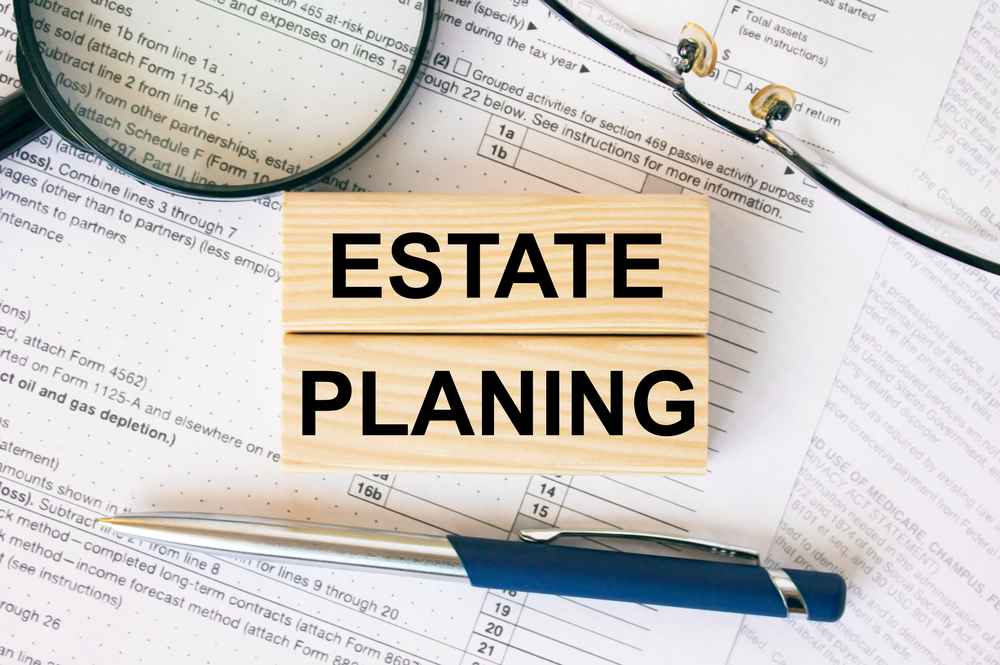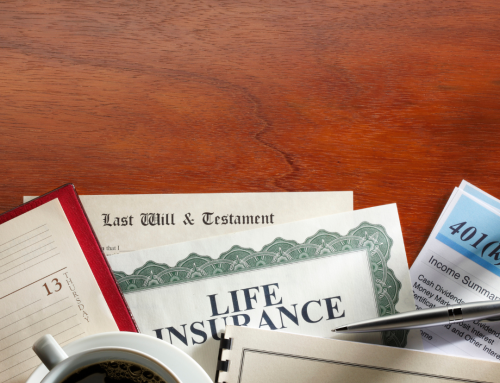Estate planning is often viewed as a task for the distant future, but it is one of the most important steps you can take to secure your family's financial well-being today, while you still have time. When it comes to estate planning, you don’t want any of your loved ones to suffer as a result of something you did wrong. Unfortunately, many people make critical mistakes during the estate planning process.
This article takes a look at ten estate planning mistakes that people commonly make and ways to help you avoid them. With thoughtful and thorough consideration, along with some experienced guidance, you can ensure that you create an estate plan that is guaranteed to carry out your wishes and safeguard your loved ones the way you intended. Let’s get started!
- Starting Too Late
Why this is a mistake:
Delaying your estate plan puts your loved ones at risk. If you wait until health issues make it hard to make clear choices, or if you wait too long and are simply unable to complete them, you might die or become incapacitated without having prepared your estate for your loved ones’ benefit.
How to avoid it:
Get started early in your estate planning, even if you are still young and healthy or haven’t yet accumulated all the wealth you plan to leave to your heirs someday. Your basic plan can be modified as your situation changes, whether through marriage, the birth of a child, or other financial shifts.
- Failing to Create a Will
Why this is a mistake:
Without a will, your property would pass by intestate succession according to the laws of the state, which may or may not conform to what you wanted to happen. This can lead to delays, probate issues, and quarrels among heirs.
How to avoid it:
Create a legal will at the earliest possible opportunity and update it frequently as major life events, such as marriage, divorce or the birth of children, occur.
- Not Updating Estate Planning Documents Regularly
Why this is a mistake:
Outdated paperwork can unexpectedly lead to outcomes you wouldn’t have wanted—perhaps leaving an asset to a deceased beneficiary or a now ex-spouse. Your assets might be at risk if asset protections are revoked by the law.
How to avoid it:
It is advisable to review your estate plan every few years and whenever your life circumstances change substantially so that your wishes are carried out and your plan complies with the law.
- Not Planning for Disability or Incapacity
Why this is a mistake:
Failure to plan for disability or incapacity can leave you vulnerable to guardianship proceedings. Without a plan in place, your loved ones might need to go through a lengthy and costly court process in order to obtain legal authority over your affairs.
How to avoid it:
Have a durable power of attorney, health care proxy and living will all in place so you’re clear on whom you want to make these key decisions if you can’t anymore.
- Naming the Wrong Trustee or Executor
Why this is a mistake:
A bad choice of trustee or executor can mean that assets are mismanaged, that the estate takes longer to settle, or that heirs fight over it. The person you choose should be financially sophisticated and have the time to take on the responsibility.
How to avoid it:
Choose someone who is financially knowledgeable, trustworthy, and has the time to handle the responsibilities. Discuss the role with them in advance to ensure they are willing and capable. If necessary, consider hiring a professional to avoid conflicts or mismanagement.
- Failing to Fund a Revocable Living Trust
Why this is a mistake:
Unless the assets are transferred into your trust, they will be probated, and you would be missing the point of setting up the trust in the first place. It will cause delays, cost more, and publicize your estate.
How to avoid it:
Once you have established your revocable living trust, transfer any relevant assets (e.g., real estate, bank accounts, investments) into the trust and periodically review the trust and update it for new assets that you acquire after the trust has been created.
- Not Planning for Long-Term Care
Why this is a mistake:
Long-term care is expensive, and if you don’t plan ahead, you could overwhelm your savings by paying for medical expenses. Losing your assets would put your financial freedom at risk and limit the choices you have about where you receive care.
How to avoid it:
Consider purchasing long-term care insurance or set up a special savings plan to cover potential future care costs. Also look into legal planning options such as Medicaid planning, which can shield your assets from creditors while still ensuring you get the care you need.
- Overlooking Digital Assets
Why this is a mistake:
Think of all your social media, email, bank accounts, intellectual property, computer files, digital photos, cloud storage, etc. If you don’t plan for them, your digital assets could be lost forever, made inaccessible, or abused by others.
How to avoid it:
Make a list of your digital assets, together with log-in information, and decide who you want to have access to after your death. Designate a digital executor in your will, and include clear instructions for how you want your digital property handled.
- Failing to Communicate the Plan to Heirs
Why this is a mistake:
If you don’t communicate your wishes to heirs, they can challenge decisions, misunderstand your intent, and cause familial discord and expensive litigation, which means your assets could take longer to distribute than intended, and relationships could be damaged for many years to come.
How to avoid it:
Talk to family members about the content of your planning documents and answer questions to help them understand your rationale—and, more importantly, to manage their expectations. You will save your loved ones from unnecessary disappointment and reduce the chance for contested matters over your estate. Consider including your heirs in the planning process to engage them and make sure that everything is clear.
- Taking a “DIY” Approach
Why this is a mistake:
Using template estate planning documents or advice you find online may mean that you end up trusting the wrong sources, which may be out of date or not customized to your unique situation. DIY’ing your estate plan leaves you vulnerable to mistakes!
How to avoid it:
Estate planning is confusing and multilayered – it is a legal process – so it is to your benefit to work with an attorney who can help you create a solid plan that is legally enforceable and in keeping with your wishes.
Selecting the Best Estate Planning Lawyer
Some of the ways an attorney can help are:
- Customized plans: a lawyer can tailor your estate plan for you and your family, whether it’s a will, trust, advanced directives or all those things.
- Legal know-how: they make sure your documents are in compliance with your home state laws, and guard you from unnecessarily high taxes and legal challenges.
- Advice on difficult issues: an attorney can give you advice about more challenging issues, such as charitable giving, passages of business from one generation to the next, and how to provide for beneficiaries with special needs.
When conducting your lawyer search, find a dedicated estate planning lawyer, not a one-size-fits-all solution. It is also beneficial to find someone who resides and works in your local community, someone with whom you have a good rapport, and who actively listens to your concerns. Additionally, it is essential to find a lawyer who takes the time to understand your goals for yourself and your family in various circumstances and who instills confidence in the services they offer. Seek out recommendations from others and check online reviews.
At KEYTLaw, we work hard to fulfill every requirement for a successful estate planning law practice. If you are prepared to initiate your estate plan, we are available to assist you.





